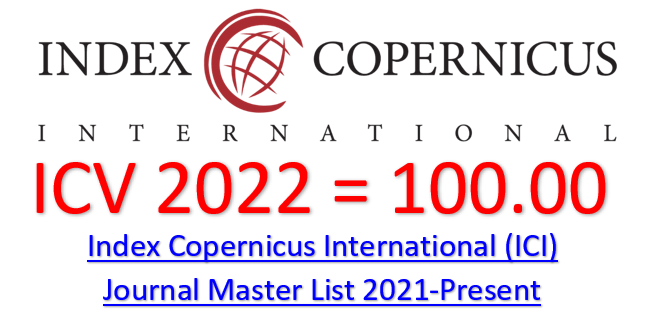Support Group Intervention on Self-Awareness and Parental Coping Strategies as an Effort to Prevent Sexual Violence in Children
DOI:
https://doi.org/10.55018/janh.v5i2.149Keywords:
Support Groups, Self-Awareness, Coping, Prevention, Sexual ViolenceAbstract
Background: The victims, primarily female children, have suffered sexual abuse, often perpetrated by individuals known to them, such as neighbors or acquaintances. In interviews with concerned parents regarding ongoing cases of sexual abuse, they expressed fears about their children falling victim to such incidents.. The research aim was to assess the effectiveness of support group interventions in enhancing self-awareness and parental coping strategies as preventive measures against child sexual abuse.
Methods: The study's main objective is to evaluate the impact of Support Groups in improving Self-Awareness and Parental Coping Strategies. It employed a quasi-experimental design using a non-equivalent group pre-test and post-test methodology, with one group as the control and the other as the experimental group. The study included 70 respondents in the intervention group and an equal number in the control group, selected through purposive sampling. Research instruments comprised the Revised Ways of Coping Scale questionnaire for coping strategies and a self-awareness questionnaire. Non-parametric data analysis was conducted using SPSS, specifically the Wilcoxon Signed Rank Test.
Results: Results of the normality test indicated that both the intervention and control groups had p-values of less than 0.05 for coping strategies (0.002 for the intervention group and 0.003 for the control group) and self-awareness (0.000 for both groups), suggesting non-normal data distribution. Consequently, non-parametric statistical analysis was applied with SPSS, and a significance level was set at p < 0.05. The Wilcoxon Signed Rank Test results for the intervention group were 0.000 (coping strategies) and 0.000 (self-awareness), signifying a significant difference in average pretest and posttest scores within the intervention group. Conversely, the control group's Wilcoxon Signed Rank Test results were 0.953 (coping strategies) and 0.317 (self-awareness), indicating no significant difference in average pretest and posttest scores within the control group.
Conclusion: Based on the research findings and discussion, it can be deduced that support group interventions positively impact the enhancement of parental coping strategies and self-awareness in the endeavor to prevent child sexual abuse.
Downloads
References
Allison Crowe and Kevin P. Lyness. (2014). Family Functioning, Coping, and Distress in Families With Serious Mental Illness. The Family Journal: Counseling and Therapy for Couples and Families, 22(2), 186–197.
Bjørlykhaug, K. I., Karlsson, B., Hesook, S. K., & Kleppe, L. C. (2022). Social support and recovery from mental health problems: a scoping review. Nordic Social Work Research, 12(5), 666–697. https://doi.org/10.1080/2156857X.2020.1868553
Brunelli, A. A., Murphy, G. C., & Athanasou, J. A. (2016). Effectiveness of social support group interventions for psychosocial outcomes: A meta-analytic review. Australian Journal of Rehabilitation Counselling, 22(2), 104–127. https://doi.org/10.1017/jrc.2016.9
Helwig, N. E., Hong, S., & Hsiao-wecksler, E. T. (n.d.). Self Reference and Self Awareness.
Karsna, K. (2022). Child Sexual Abuse in 2020/21: Trends in Official Data. February.
Kewley, S., & Barlow, C. (2020). Preventing Sexual Violence. Preventing Sexual Violence, 1–2. https://doi.org/10.46692/9781529203738
Kusumawardani, W., Nursalam, N., & Nihayati, H. E. (2020). The Effect of a Combination of Group Therapy and Support on the Self-Efficacy and Deviant Behavior of Adolescents. Jurnal Ners, 15(2 Special Issue), 548–552. https://doi.org/10.20473/jn.v15i2(si).20531
Li, F., Luo, S., Mu, W., Li, Y., Ye, L., Zheng, X., Xu, B., Ding, Y., Ling, P., Zhou, M., & Chen, X. (2021). Effects of sources of social support and resilience on the mental health of different age groups during the COVID-19 pandemic. BMC Psychiatry, 21(1), 1–14. https://doi.org/10.1186/s12888-020-03012-1
Li, Y., Peng, J., & Tao, Y. (2023). Relationship between social support, coping strategy against COVID-19, and anxiety among home-quarantined Chinese university students: A path analysis modeling approach. Current Psychology, 42(13), 10629–10644. https://doi.org/10.1007/s12144-021-02334-x
London, M., Sessa, V. I., & Shelley, L. A. (2023). Developing Self-Awareness: Learning Processes for Self- and Interpersonal Growth. Annual Review of Organizational Psychology and Organizational Behavior, 10, 261–288. https://doi.org/10.1146/annurev-orgpsych-120920-044531
Muhammad Fahmi. (2023). Kasus Kekerasan terhadap Anak di Kota Probolinggo Meningkat. Radar Bromo, 1.
Owens, H. (2022). ScholarWorks at WMU Age as a Moderator in the Relationship Between Coping Strategies and Well-Being During the COVID-19 Pandemic.
Rahayu, R., & Dinni, S. M. (2021). The Effectiveness of Supportive Group Therapy in Reducing Anxiety of Bullying Victims at Smp X Yogyakarta Indonesia. International Journal of Latest Research in Humanities and Social Science (IJLRHSS), 04(01), 34–40.
Rakhmawati, D., Maulia, D., Widiharto, C. A., & Widodo, S. (2020). The Effect of Sexual Violence on Children. 462(5), 311–314. https://doi.org/10.2991/assehr.k.200814.069
Ratnaningsih, S., & Yogyakarta, D. I. (2019). Psychological Impact of Sexual Violence in Children :
RONGGO ASTUNGKORO, R. S. (2023). KemenPPA: Kasus Kekerasan Terhadap Anak Melonjak. PT Republika Media Mandiri, 1.
Worrall, H., Schweizer, R., Marks, E., Yuan, L., Lloyd, C., & Ramjan, R. (2018). The effectiveness of support groups: a literature review. Mental Health and Social Inclusion, 22(2), 85–93. https://doi.org/10.1108/MHSI-12-2017-0055
Xianguo Qu, Xin Shen, Ruihong Xia, Ji Wu, Yilei Lao, Min Chen, Yong Gan, C. J. (2022). The prevalence of sexual violence against female children: A systematic review and meta-analysis. Child Abuse & Neglect, 131. https://doi.org/https://doi.org/10.1016/j.chiabu.2022.105764
Downloads
Published
How to Cite
Issue
Section
License

This work is licensed under a Creative Commons Attribution-ShareAlike 4.0 International License.

























